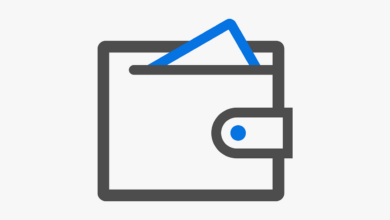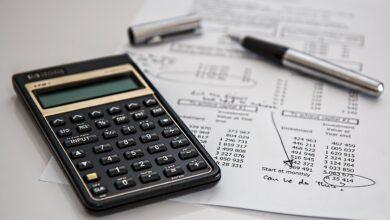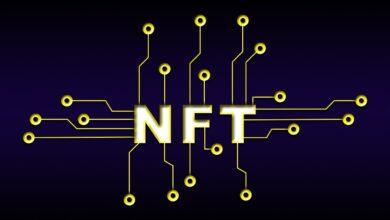Fortify Your Crypto – Crafting Strong Passwords

In an age where digital currency has become a significant player in the global economy, establishing a robust security framework for your cryptocurrency accounts is paramount. The ever-evolving landscape of cyber threats necessitates not only a keen understanding of these risks but also a proactive approach to safeguarding your digital assets. Crafting a secure password for your crypto wallets is one of the most critical steps you can take to protect your financial interests in this burgeoning domain.
When considering the nature of cryptocurrency, it becomes evident that the decentralized and often anonymous characteristics of digital currency require users to adopt stringent security measures. Your access code serves as the first line of defense against unauthorized intrusion, making it essential to develop a password that is both strong and memorable. This delicate balance between security and usability can be achieved through thoughtful crafting techniques that prioritize complexity and unpredictability.
The journey toward establishing a secure password for your cryptocurrency accounts begins with an understanding of what constitutes a robust security protocol. A strong password should encompass a variety of elements, including length, randomness, and the avoidance of easily guessable information. By employing a combination of letters, numbers, and symbols, you can fortify your digital fortress against potential breaches, ensuring that your financial future remains intact amidst the uncertainties of the crypto market.
As we delve deeper into the intricacies of password development for cryptocurrency wallets, it’s important to recognize that every detail matters. Each character in your password represents a barrier between you and potential threats lurking in the shadows of cyberspace. With diligence and care in crafting your access codes, you can cultivate a sense of security and confidence in your digital currency endeavors, ultimately allowing you to navigate this exciting frontier with peace of mind.
Importance of Strong Passwords
In the digital age, where cryptocurrency accounts have become a prime target for cybercriminals, the importance of strong passwords cannot be overstated. A robust password serves as the first line of defense against unauthorized access to your crypto wallets and sensitive information. Statistics indicate that over 80% of data breaches are linked to weak or stolen passwords. Thus, establishing a secure access code is not merely a recommendation; it is an essential practice in safeguarding your financial assets in the volatile world of digital currencies.
When developing a password for your cryptocurrency wallets, one must move beyond common practices like using birthdays or pet names. Instead, crafting a password that is both complex and unique is vital. Experts suggest utilizing a combination of uppercase and lowercase letters, numbers, and special characters. For instance, instead of “Password123,” consider something like “C0mpl3x!Crypto#2024.” This approach not only enhances security but makes it exponentially harder for potential attackers to crack your code through brute force methods.
Furthermore, it is essential to avoid reusing passwords across different accounts. Each digital account should have its own distinct password to minimize risk. When one account is compromised, others can remain secure if they are not linked by the same access code. The use of password managers can be instrumental here, as they allow you to generate and store robust passwords without the need to memorize each one. This method simplifies managing multiple passwords while maintaining the integrity of your security protocols.
In addition to crafting a secure password for your crypto accounts, employing two-factor authentication (2FA) significantly bolsters your defenses. By requiring a second form of verification–such as a text message or authenticator app–an additional layer of protection is established. Even if an attacker manages to obtain your password, they would still need access to this second factor to breach your account. This dual-layer approach is increasingly recognized as a best practice in securing digital assets.
Moreover, regular updates to your passwords are crucial in maintaining ongoing security. Just as you would periodically change locks on physical doors, changing your password every few months can thwart potential intruders who may have gained access through various means. Keeping abreast of any breaches involving services you utilize also warrants immediate action; if a platform you trust has been compromised, changing your access codes should be among your first steps.
In conclusion, investing time in establishing strong passwords for your cryptocurrency accounts is a fundamental aspect of digital asset management. The process involves crafting complex codes that are unique to each wallet and account while considering supplementary measures such as two-factor authentication and regular updates. As we navigate an increasingly interconnected world, fortifying our digital defenses against evolving threats remains paramount for anyone engaged in the realm of cryptocurrency and beyond.
Common Password Mistakes in Cryptocurrency Security
In the ever-evolving landscape of cryptocurrency, the importance of secure passwords cannot be overstated. A robust access code is your first line of defense against unauthorized access to your digital currency accounts. Yet, despite this understanding, many individuals still fall prey to common password mistakes that jeopardize their assets. The use of easily guessable passwords, such as “123456” or “password,” compromises the security of crypto wallets and leaves them vulnerable to attacks. It is crucial to recognize that a weak password can render even the most sophisticated security systems ineffective.
Establishing a strong password for your cryptocurrency accounts involves more than just avoiding obvious choices. It requires a thoughtful approach that incorporates complexity and unpredictability. Passwords should be at least 12 characters long and include a mix of uppercase letters, lowercase letters, numbers, and special symbols. This diversity creates a secure barrier against brute force attacks, where malicious actors systematically attempt various combinations to gain access. Additionally, avoid using personal information like birthdays or names, as these can often be easily deduced by cybercriminals.
When developing a robust password for cryptocurrency wallets, consider utilizing passphrases–long sequences of words that create an easy-to-remember yet difficult-to-guess phrase. For example, “BlueSky!Dancing@Stars9” combines unrelated concepts into a unique string that significantly enhances security. Furthermore, employing a password manager can streamline the process of crafting and storing complex passwords, allowing you to maintain high levels of security without the burden of memorization.
Crafting a secure password for your crypto accounts also necessitates periodic changes. Regularly updating your access codes reduces the risk of long-term exposure if a password has been compromised without your knowledge. Set reminders to change your passwords every few months, and ensure that you do not recycle old passwords. Each new code should maintain the same level of complexity to continue safeguarding your assets effectively.
Moreover, multi-factor authentication (MFA) should become an integral part of your security strategy in addition to strong passwords. MFA provides an additional layer of protection by requiring users to verify their identity through multiple means–such as a text message code or biometric verification–before accessing their accounts. This system dramatically reduces the likelihood of unauthorized access, even if someone manages to obtain your password.
In summary, navigating the digital realm of cryptocurrency demands a conscientious effort towards securing your accounts through robust password practices. By recognizing common pitfalls and implementing strategies like creating complex passwords, utilizing passphrases, updating regularly, and incorporating multi-factor authentication, you can significantly enhance the security of your digital currency holdings. In this age of increasing cyber threats, vigilance and proactive measures are essential for protecting your financial future in the world of cryptocurrency.
Best Practices for Creating Passwords
In an age where the digital landscape is rife with threats, crafting a strong password for your cryptocurrency accounts is more critical than ever. A robust password serves as your first line of defense against unauthorized access to your digital currency assets. To ensure the security of your accounts, it is vital to establish a password that is not only complex but also memorable enough for you to recall without resorting to insecure methods of storage. The use of a combination of uppercase letters, lowercase letters, numbers, and special characters can significantly enhance the strength of your password, making it exponentially harder for potential attackers to crack.
When developing a secure access code for your crypto accounts, consider employing passphrases rather than traditional passwords. A passphrase can be a series of random words or a memorable sentence that is difficult for others to guess yet easy for you to remember. For instance, instead of using “Crypto123!”, one might opt for “WhimsicalKangaroosDance@Sunset”. This approach not only increases complexity but also introduces length, which is another crucial factor in password strength. Additionally, regularly updating your passwords and avoiding the reuse of codes across different accounts can further bolster your defenses.
Establishing strong security practices extends beyond merely creating a secure password; it also involves utilizing two-factor authentication (2FA) wherever possible. By requiring an additional verification step–such as a one-time code sent to your mobile device–you add an extra layer of protection to your cryptocurrency wallets and accounts. This means that even if someone manages to obtain your password, they would still require access to your second factor to gain entry. Thus, integrating 2FA into your security regimen transforms your approach from reactive to proactive.
Finally, it’s imperative to recognize the importance of secure storage solutions for your passwords. Utilizing reputable password managers can aid in securely storing and generating strong passwords for all your digital currency accounts. These tools allow you to maintain unique and complex passwords without the burden of memorization. In conclusion, by adhering to these best practices–crafting robust passwords, using passphrases, establishing two-factor authentication, and leveraging secure storage–you can significantly enhance the security of your cryptocurrency holdings against an ever-evolving array of cyber threats.
Using Password Managers Efficiently
In the digital age, where cryptocurrency accounts are becoming increasingly vital to personal finance, establishing a strong access protocol is paramount. One of the most effective methods for securing these accounts is through the use of password managers. These tools not only simplify the process of managing multiple passwords but also enhance security by generating robust passwords that would be nearly impossible to crack. By employing a password manager, users can focus on developing a unique password for each cryptocurrency wallet, thereby mitigating the risk associated with reusing passwords across various platforms.
Crafting a secure password specifically for your crypto accounts requires an understanding of what constitutes strength in a password. A strong password should ideally be at least 12-16 characters long and incorporate a mix of uppercase and lowercase letters, numbers, and special symbols. The goal is to create complexity that defies easy guessing or brute-force attacks. For instance, rather than using easily memorable phrases or common words, consider random combinations or passphrases that weave together unrelated concepts, making it difficult for potential intruders to decode.
When establishing a strong access code for digital currency accounts, it is crucial to recognize the role of two-factor authentication (2FA) alongside your password strategy. While a robust password serves as the first line of defense, 2FA adds an additional layer of security by requiring a second form of verification–often something you have in your possession, like a smartphone app or hardware token. This dual-layer approach significantly reduces the likelihood of unauthorized access, even if your password were somehow compromised.
For those venturing into the realm of cryptocurrency wallets, it’s essential to understand the nuances between different types of wallets–be they hot wallets connected to the internet or cold wallets that are offline. Each type necessitates its own unique approach to security. Hot wallets require more immediate attention to crafting strong passwords and regularly updating them due to their constant connection to the internet. Conversely, cold wallets may allow for slightly less frequent updates but should still employ robust passwords to secure stored funds.
In addition to crafting passwords and establishing access codes, users must also remain vigilant about potential phishing attacks and other social engineering tactics that could compromise their accounts. Education plays a crucial role in this aspect; being aware of common scams can help users avoid falling victim to them. Regularly updating passwords and maintaining an organized system within your password manager can further bolster your defenses against these threats.
Finally, let us not underestimate the psychological component involved in managing our digital lives. The act of developing a secure mindset towards our cryptocurrency accounts, reinforced by effective use of technology like password managers, ultimately empowers us as individuals navigating this complex financial landscape. By prioritizing security measures and committing to best practices in password management, we can ensure that our digital currency remains safe from prying eyes, allowing us to confidently engage with the evolving world of cryptocurrency.
Conclusion: The Art of Crafting Strong Passwords for Your Cryptocurrency Accounts
In the intricate world of digital currency, where fortunes can be made or lost in the blink of an eye, establishing a robust password is not merely a precaution; it is an imperative. As we have explored throughout this article, the significance of a strong access code cannot be overstated. It serves as the first line of defense against the myriad threats that lurk in the shadows of cyberspace, waiting for an opportunity to exploit vulnerabilities.
Crafting a secure password for your crypto wallets and accounts requires a blend of creativity and diligence. It is about developing a unique code that resonates with you personally while adhering to best practices. In doing so, you not only safeguard your assets but also cultivate a sense of empowerment over your financial future. Remember, your password is not just a string of characters; it is the key to your digital kingdom.
Key Takeaways for Secure Cryptocurrency Management
- Updating Your Password Frequently: Regularly changing your access code mitigates risks associated with data breaches and enhances security.
- Crafting a Strong Password: Combine letters (both uppercase and lowercase), numbers, and symbols to create a complex yet memorable password.
- Establishing a Robust Access Code: Aim for at least 12-16 characters to ensure your password remains formidable against brute-force attacks.
- Developing Secure Practices: Utilize password managers for storing complex passwords and enable two-factor authentication wherever possible.
In conclusion, investing time and thought into developing a strong password for your cryptocurrency accounts is not just wise; it is essential. By embracing these strategies, you fortify your digital presence and protect your hard-earned assets. In this ever-evolving landscape of crypto finance, let us remember that our vigilance today will secure our wealth for tomorrow.





